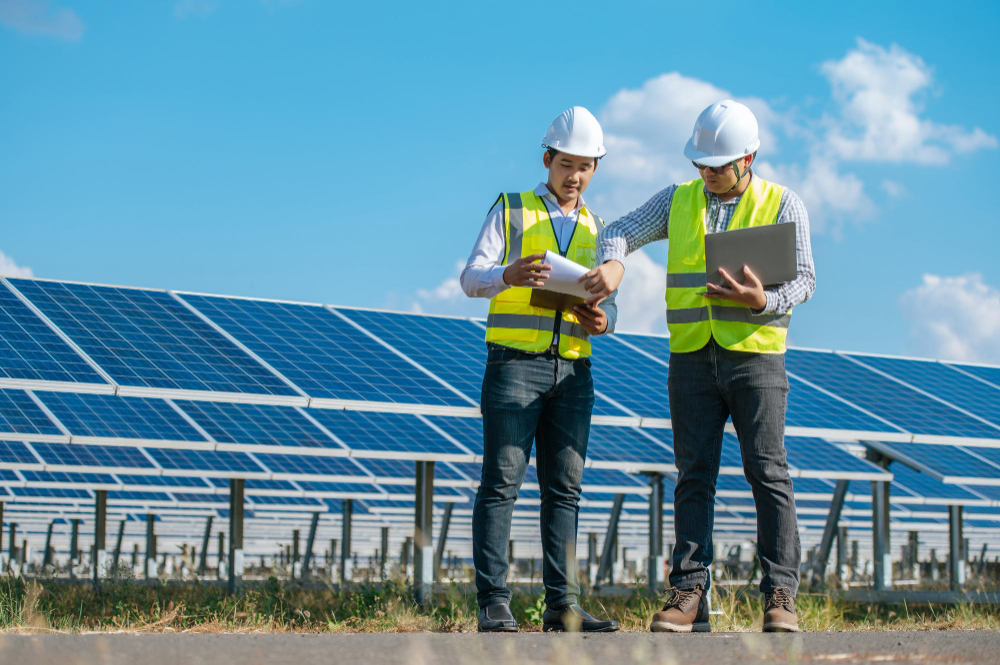Adopting solar energy is more than just installing panels—it’s about understanding the local environment, building regulations, and community needs that influence the performance and longevity of a solar system, notes the Vesta Property Management experts team. When homeowners or businesses choose solar power, they often overlook the importance of local knowledge in a project’s success. From navigating city permits to adapting to regional weather conditions, local professionals provide a layer of insight that ensures installations perform efficiently and safely. We will explore how local understanding influences the design, implementation, and maintenance of solar energy systems for long-term sustainability.
Why Local Knowledge Matters in Solar Projects
- Understanding Regional Climate and Sunlight Conditions
Every solar installation is deeply affected by its environment. Solar providers in Pleasanton understand the precise weather patterns, sunlight exposure, and seasonal variations that determine the effectiveness of a solar system. For instance, Pleasanton, California, experiences abundant sunshine but also varying temperatures that can affect panel efficiency. Locally knowledgeable installers know how to optimize panel angles and select durable materials suited for this climate.
They can anticipate potential challenges such as dust accumulation from dry seasons or moisture from morning fogs, both of which impact solar output. These insights allow them to recommend cleaning schedules and preventive maintenance plans. Furthermore, understanding regional microclimates enables precise predictions of energy yield, ensuring customers receive realistic expectations and accurate system sizing. Without such regional insight, solar installations can underperform or require more frequent maintenance, ultimately reducing their long-term value and return on investment.
Navigating Local Permits, Zoning, and Utility Regulations
Solar energy systems must comply with several local requirements before they can operate. A team familiar with municipal permitting and inspection processes helps homeowners avoid delays and complications. In Pleasanton, for example, specific zoning laws, homeowner association approvals, and building codes govern the installation of solar panels. Local installers often have established relationships with city planning departments and utility companies, enabling faster approvals and smoother grid connections.
They also understand region-specific incentive programs, rebates, and net-metering rules that help homeowners save money. Such knowledge prevents costly mistakes, like placing panels in restricted areas or failing to meet local electrical safety standards. Local professionals not only simplify bureaucratic hurdles but also stay up-to-date with changing regulations, ensuring systems remain compliant for years. Their familiarity with local infrastructure ensures that the solar energy produced integrates seamlessly into the grid, maximizing the homeowner’s financial and environmental returns.
Designing Systems for Community Needs and Architectural Styles
Local installers are more attuned to the community’s aesthetics and preferences. In places like Pleasanton, where architectural charm and neighborhood cohesion are valued, a solar system’s visual integration can significantly influence approval and satisfaction. Local professionals know how to design systems that blend seamlessly with existing rooflines and complement the architectural style of homes, thereby preserving the neighborhood’s appeal.
Moreover, they understand the community’s broader energy goals, whether it’s reducing peak grid load, promoting clean energy adoption, or supporting local sustainability initiatives. By aligning system design with community priorities, local installers foster long-term acceptance and encourage wider adoption. They also take into account the roof materials commonly used in the area, ensuring compatibility between solar mounting hardware and roofing types. This results in installations that are both functional and visually harmonious, strengthening the connection between environmental responsibility and neighborhood identity.
Building Relationships for Reliable Maintenance and Support
Solar systems are long-term investments that require periodic maintenance, monitoring, and sometimes repair. Working with local providers ensures that help is nearby whenever it’s needed. Unlike out-of-town companies that may delay service visits, local teams can respond quickly to technical issues or weather-related damage. They also maintain relationships with local suppliers, enabling faster access to replacement parts and equipment. Regular maintenance is more convenient, and inspections can be scheduled seasonally to ensure the system operates at peak efficiency.
These local connections create trust and accountability—customers know where to find their installers and can rely on consistent service over time. Local providers often check in after installation to monitor performance and offer updates on energy optimization, helping customers maximize savings. Over time, this partnership evolves beyond a simple service relationship into a community bond, where both parties contribute to the shared goal of sustainable living.
Supporting the Local Economy and Sustainability Goals
Choosing local solar professionals contributes directly to the growth of the regional economy. Every project generates local jobs, from site assessments and electrical work to ongoing maintenance and customer support. The money spent stays within the community, strengthening economic resilience. Moreover, local providers are more likely to adopt sustainable practices that align with community values. They often source materials from nearby suppliers, thereby reducing transportation emissions, and collaborate with local government programs that promote renewable energy. This localized economic cycle amplifies the benefits of solar energy by creating a ripple effect of environmental and financial gains.
Supporting local businesses also enhances transparency—customers can easily verify reputations, visit offices, and understand how their investment supports broader regional sustainability goals. The more communities prioritize local solar providers, the stronger and more self-sufficient their clean energy infrastructure becomes, laying the groundwork for a greener, energy-independent future.
Local knowledge plays a crucial role in the success of solar installations. It combines technical skill with community understanding, ensuring every system is efficient, compliant, and tailored to its environment. From navigating permits and weather challenges to maintaining lasting relationships, local professionals provide insight that large, distant companies often lack. They strengthen regional economies, uphold sustainability standards, and prepare communities for future energy innovations.
For more, visit Pure Magazine


